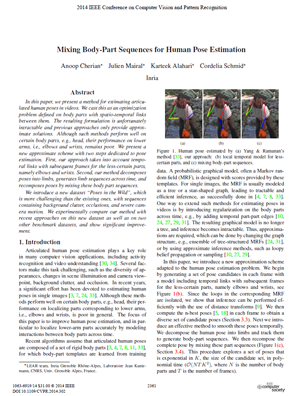Seminar on Current Works in Computer Vision
Prof. Thomas BroxThe goal of Computer Vision is to imitate the flexibility and robustness of the human visual system and has a large impact on the success of artificial intelligence in general. Research has made significant progress in recent years particularly due to deep learning. Meanwhile computer vision is interweaved with other scopes of machine learning. In this seminar we will take a detailed look at various recent papers that span a broad range of hot topics.
For each paper there will be one person, who performs a more detailed investigation of the research paper and its background, and who will give a presentation. The presentation is followed by a discussion with all participants about the merits, limitations, and perspectives of the respective paper. You will learn to read and understand contemporary research papers, to give a good oral presentation, to ask questions, and to openly discuss a research problem.
|

|
Material:
Giving a good presentationProper scientific behavior
Slides of the introductory lecture
Powerpoint template for your presentation (optional)
Papers:
| Date | Paper | Questions | Presenting student | Slides | Advisor |
| 28.05 | GAIA-2 driving world model | Questions | Sejal Jhadav | Silvio Galesso | |
| 04.06 | Nested diffusion models | Questions | Julius Schumann | Arian Mousakhan | |
| 25.06 | Sparse feature circuits | Questions | Ayisha Ryhana Dawood | Simon Schrodi | |
| 02.07 | Planning with latent dynamics models | Questions | Ole Gudden | Sudhanshu Mittal | |
| 09.07 | Fast diffusion models | Questions | Vindhya Janardhan | Johannes Dienert | |
| 16.07 | Memorization in diffusion models | Moritz Steinmaier | Basavraj Sunagad | ||
| 23.07 | Multimodal future prediction | Maksim Velikanov | Silvio Galesso | ||
| 30.07 | Physical principles in video diffusion models | Colin Duchilio | Rajat Sahay | ||


